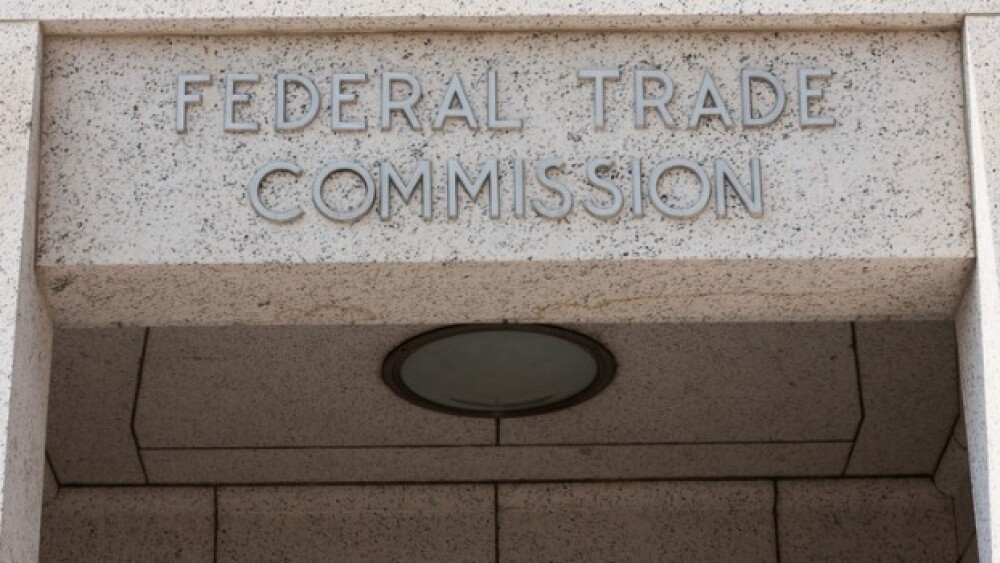Following a countersuit by Amgen and Horizon Therapeutics, the Federal Trade Commission has temporarily suspended its challenge to the multi-billion dollar merger between the two companies.
Pictured: Doorway sign at the FTC building/iStock, Gromit702
The Federal Trade Commission has temporarily suspended its lawsuit against Amgen and Horizon Therapeutics seeking to block the multi-billion dollar merger between the two companies, according to a court filing posted late Friday.
The case will be “withdrawn from adjudication” until Sept. 18, according to the filing, and this will allow the FTC to consider other avenues of resolving the matter, including a settlement.
In a statement to Reuters, Amgen said it was aware of the pause and is ready to prove that there is no reason not to allow the deal to push through. Amid the legal challenge, the company still expects to consummate the acquisition by December 2023.
Amgen first moved to buy Horizon in December 2022 in an effort to gain access to the latter’s rare disease assets, including the thyroid eye disease therapy Tepezza (teprotumumab-trbw) and the neuromyelitis optica spectrum disorder medicine Uplizna (inebilizumab-cdon).
The buyout was quick to attract regulatory and political scrutiny for its potential anti-trust issues. In January 2023, Sen. Elizabeth Warren (D-MA) singled out the Amgen-Horizon deal in a letter to the FTC, urging the federal body to “carefully scrutinize these deals and oppose and Big Pharma acquisitions that will threaten competition, reduce innovation, or increase costs for American families.”
The FTC eventually heeded Warren’s warnings and in May 2023 filed a lawsuit seeking to prevent the companies from closing the acquisition. In its filing, the FTC raised concerns about “cross-market rebating and bundling” by Amgen and the potential for its strong assets to be leveraged to secure better formulary placements for Horizon’s treatments.
In a statement following the lawsuit, Amgen called these concerns “entirely speculative” and that its medicines address different diseases and are meant for different patient populations as compared with Horizon’s assets. “There are no overlaps of competitive concern,” the company wrote in its news release at the time.
Two months later, Amgen and Horizon filed their own countersuit, alleging that the FTC’s efforts to block the buyout is unconstitutional, especially as the watchdog is looking to hold hearings in an administrative court rather than an Article III court.
“The FTC seeks to have the ultimate merits of its case adjudicated in an administrative proceeding that is riddled with constitutional defects,” the companies wrote in their complaint. “The FTC’s case is wholly novel and impossibly speculative.”
In July 2023, Bloomberg reported that the companies and the FTC had engaged in settlement talks, but that these have died down.
Tristan Manalac is an independent science writer based in Metro Manila, Philippines. He can be reached at tristan@tristanmanalac.com or tristan.manalac@biospace.com.






